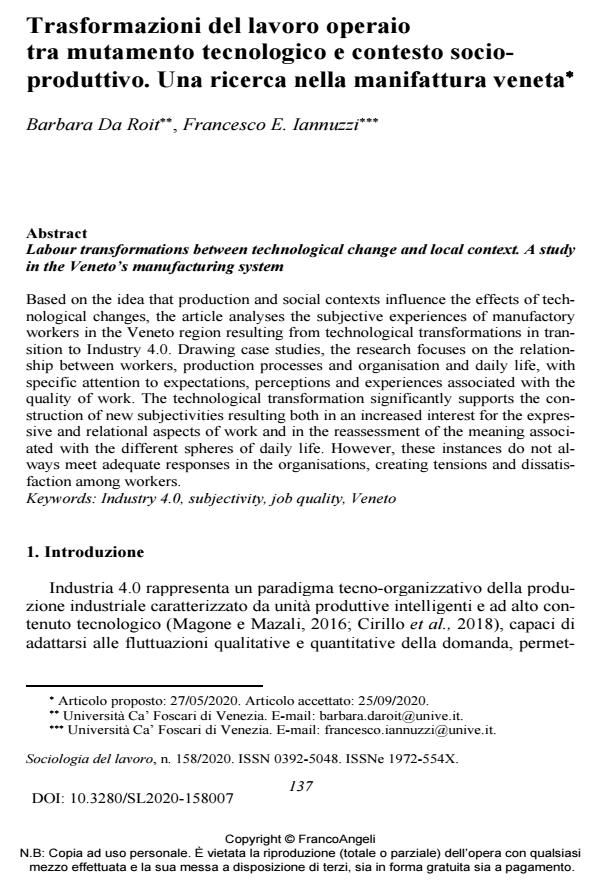Labour transformations between technological change and local context. A study in the Veneto’s manufacturing system
Journal title SOCIOLOGIA DEL LAVORO
Author/s Barbara Da Roit, Francesco E. Iannuzzi
Publishing Year 2020 Issue 2020/158
Language Italian Pages 21 P. 137-157 File size 269 KB
DOI 10.3280/SL2020-158007
DOI is like a bar code for intellectual property: to have more infomation
click here
Below, you can see the article first page
If you want to buy this article in PDF format, you can do it, following the instructions to buy download credits

FrancoAngeli is member of Publishers International Linking Association, Inc (PILA), a not-for-profit association which run the CrossRef service enabling links to and from online scholarly content.
Based on the idea that production and social contexts influence the effects of technological changes, the article analyses the subjective experiences of manufac-tory workers in the Veneto region resulting from technological transformations in transition to Industry 4.0. Drawing case studies, the research focuses on the rela-tionship between workers, production processes and organisation and daily life, with specific attention to expectations, perceptions and experiences associated with the quality of work. The technological transformation significantly supports the construction of new subjectivities resulting both in an increased interest for the expressive and relational aspects of work and in the reassessment of the meaning associated with the different spheres of daily life. However, these instances do not always meet adequate responses in the organisations, creating tensions and dissat-isfaction among workers.
Keywords: Industry 4.0, subjectivity, job quality, Veneto
Barbara Da Roit, Francesco E. Iannuzzi, Trasformazioni del lavoro operaio tra mutamento tecnologico e contesto socioproduttivo. Una ricerca nella manifattura veneta in "SOCIOLOGIA DEL LAVORO " 158/2020, pp 137-157, DOI: 10.3280/SL2020-158007